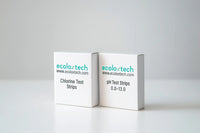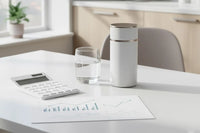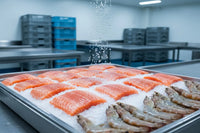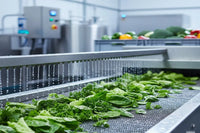Keeping our homes and workplaces clean is essential for maintaining health and preventing disease spread. However, the common use of chemical disinfectants carries hidden dangers that many are unaware of. This blog post explores the health risks associated with these chemicals and introduces eco-friendly alternatives like hypochlorous acid (HOCl).
Understanding Chemical Disinfectants
Chemical disinfectants are substances used to kill harmful bacteria, viruses, and fungi on surfaces. They are vital for maintaining hygiene in both household and professional settings. Common disinfectants include:
- Bleach (Sodium Hypochlorite): A powerful disinfectant often used in hospitals and homes.
- Quaternary Ammonium Compounds (Quats): Found in many household cleaners and disinfectant wipes.
- Alcohol-Based Disinfectants: Common in hand sanitizers and surface cleaners.
- Phenolic Disinfectants: Used in hospitals and labs for their broad-spectrum efficacy.
While effective at killing pathogens, their frequent use can pose significant health risks.
The Health Risks of Chemical Disinfectants
Respiratory Issues
Inhaling fumes from products like bleach and quats can irritate the respiratory tract. Prolonged exposure increases the risk of c onic bronchitis and asthma. Studies show that healthcare workers who use these disinfectants frequently are particularly at risk.
Skin Sensitivities
Direct contact with harsh chemical disinfectants can lead to irritation, redness, and even chemical burns. Those with sensitive skin or conditions like eczema are especially vulnerable, as frequent exposure can worsen symptoms.
Potential Links to Serious Health Conditions
Long-term exposure to certain disinfectants has been linked to reproductive toxicity and hormonal disruption. Quats and phenolic compounds, for example, may interfere with hormone function and lead to developmental issues according to emerging studies.
The Benefits of Hypochlorous Acid (HOCl)
Hypochlorous acid is a natural compound produced by white blood cells to fight infection. It’s a powerful yet non-toxic disinfectant that’s safe for humans and animals alike. Unlike traditional chemicals, HOCl kills pathogens effectively without harmful fumes or residues.
What is Hypochlorous Acid?
Hypochlorous acid (HOCl) is produced naturally by the body’s immune system. It can also be created t ough electrolysis—converting salt and water into a powerful disinfectant. HOCl neutralizes bacteria, viruses, and fungi without the health hazards of bleach or alcohol-based cleaners.
Practical Applications of HOCl
- Air Freshener: Use HOCl mist to neutralize odors and disinfect the air—no harmful aerosols needed.
- Batroom Cleaner: Effectively disinfects sinks, toilets, and showers without toxic fumes.
- Fruit & Produce Wash: Removes pesticides and contaminants safely, leaving no residue.
- Skin Care: Reduces acne and inflammation while promoting healing.
- Kitchen Cleaner: Safe for food prep surfaces—kills germs without contamination risk.
- Pet Care: Gentle enough for cleaning pet fur and paws, eliminating odors safely.
By replacing harsh chemicals with HOCl, households and workplaces can stay clean while protecting health and the environment.
Hypochlorous Acid for Psoriasis, Eczema, and Acne
Recent research highlights HOCl’s potential in treating c onic skin conditions such as psoriasis, eczema, and acne. Its gentle, non-toxic formula offers relief without irritation.
- Eczema: Healthline notes HOCl’s antimicrobial and anti-inflammatory effects reduce bacterial load and itching, minimizing flare-ups.
- Psoriasis: A study in the Journal of Integrative Dermatology found HOCl helps reduce inflammation and accelerate healing of psoriatic plaques.
- Acne: According to Lumion Life, HOCl-based products soothe, hydrate, and disinfect acne-prone skin more gently than harsh treatments.
By integrating HOCl into skincare, users can achieve clearer, calmer, and healthier skin—especially those with sensitivity or c onic inflammation.
Recommendations for Switching to HOCl
Transitioning to hypochlorous acid is simple. Start by replacing one or two chemical disinfectants, then expand gradually. Here’s how HOCl can replace traditional products:
- Household Disinfectant: Replaces bleach or ammonia; safer for lungs and surfaces.
- Fruit & Vegetable Sanitizer: Replaces chlorine and vinegar; food-safe and effective.
- Air Freshener: Replaces aerosols; neutralizes odors naturally.
- Bat oom Cleaner: Replaces bleach-based products; reduces chemical exposure.
- Kitchen Cleaner: Replaces antibacterial wipes; safe near food.
- Skin Care: Replaces harsh acne creams; soothes and repairs skin.
- Pet Care: Replaces chemical shampoos; deodorizes safely.
- Wound Care: Replaces alcohol and peroxide; speeds healing without stinging.
- Laundry Additive: Replaces sanitizing sprays; eliminates odors and bacteria.
- Hand Sanitizer: Replaces alcohol gels; gentle, non-drying formula.
Introducing Ecolox: Your Safe, Eco-Friendly Cleaning Partner
Ecolox offers a full line of products powered by hypochlorous acid, making it easy to switch to safer disinfection. Designed for everyday use, these products deliver professional-grade cleaning with zero toxins.
Everyday Use & Applications
- Surface Disinfection: Sanitizes high-touch areas like doorknobs and countertops.
- Laundry Additive: Sterilizes fabrics and removes allergens naturally.
- Wound Care: Disinfects gently without irritation.
Choosing Ecolox Products
- Ecolox Multi-Purpose Cleaner: Ideal for kitchens, appliances, and surfaces.
- Ecolox Personal Care Spray: Safe for sensitive skin and daily skincare routines.
- Ecolox Bat oom Cleaner: Eliminates grime and sanitizes without toxic fumes.
- Ecolox Fruit & Vegetable Wash: Safely removes pesticides and residues.
- Ecolox Air & Fabric Freshener: Neutralizes odors and disinfects air naturally.
Switching to Ecolox products means choosing a healthier, eco-conscious lifestyle. Visit the Ecolox website to explore the full range and make the switch to safe, sustainable cleaning today.
Conclusion
Maintaining cleanliness is crucial for good health—but it shouldn’t come at the cost of exposure to harmful chemicals. By understanding the risks of conventional disinfectants and adopting safer alternatives like hypochlorous acid, you can protect both your wellbeing and the planet.
Your health is worth it. Join the movement toward eco-conscious cleaning and experience the difference that safer, science-backed disinfection can make.





